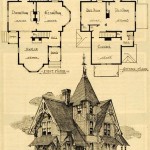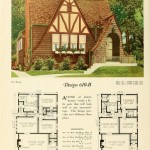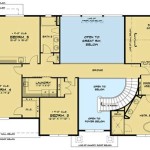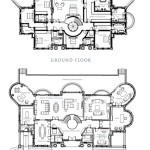Do It Yourself (DIY) house plans are self-explanatory blueprints that provide instructions for building or renovating a house without the need for an architect or contractor. These plans offer a cost-effective way to design and construct a home, giving homeowners the flexibility to customize their living space according to their specific needs and preferences. For instance, a couple planning to build their dream home could utilize DIY house plans to create a unique and personalized design that perfectly complements their lifestyle and budget.
DIY house plans are not just for novice homebuilders; even experienced contractors often rely on them to save time and resources. The comprehensive instructions and detailed drawings provided in these plans make it easier to obtain building permits and streamline the construction process. Whether it’s a small cabin or a multi-story mansion, DIY house plans empower homeowners to take control of their building projects, resulting in significant savings and a sense of accomplishment.
Keep in mind these key points when using DIY house plans:
- Cost-effective
- Customizable
- Time-saving
- Detailed instructions
- Permit assistance
- Beginner-friendly
- Contractor-approved
- Widely available
- Versatile designs
By considering these factors, you can harness the power of DIY house plans to create your dream home while saving money and gaining valuable experience.
Cost-effective
One of the most significant advantages of DIY house plans is their cost-effectiveness. Compared to hiring an architect to design a custom home, DIY plans offer substantial savings. Architectural fees can range from 5% to 15% of the total construction cost, which can add up to tens of thousands of dollars for a typical home. By opting for DIY plans, homeowners can eliminate these hefty fees and allocate the saved funds towards other aspects of their project, such as higher quality materials or additional amenities.
Moreover, DIY house plans often come with detailed material lists and construction instructions, allowing homeowners to purchase materials directly from suppliers and contractors at wholesale prices. This eliminates the markup typically charged by architects and contractors for materials and labor, further reducing overall costs. Additionally, DIY plans provide homeowners with the flexibility to complete certain tasks themselves, such as painting, flooring, or landscaping, which can save even more money on labor expenses.
It’s important to note that while DIY house plans are more affordable than hiring an architect, they still require careful planning and execution to ensure a successful outcome. Homeowners should carefully review the plans and ensure they have the necessary skills and resources to complete the project. If necessary, they can consult with a contractor for guidance or assistance with specific aspects of the construction.
Overall, DIY house plans offer a cost-effective way to design and build a home without sacrificing quality or customization. By eliminating architectural fees and providing the flexibility for self-completion of certain tasks, DIY plans empower homeowners to save thousands of dollars while creating their dream living space.
Customizable
DIY house plans stand out for their exceptional level of customization, empowering homeowners to tailor their homes to their unique needs, preferences, and lifestyle. Unlike pre-designed homes or cookie-cutter floor plans, DIY plans offer the flexibility to modify and adapt the design to suit specific requirements. This level of customization extends to every aspect of the home, from the overall layout and room dimensions to the selection of materials and finishes.
One of the key advantages of customizable DIY house plans is the ability to optimize space utilization. Homeowners can carefully consider their daily routines, storage needs, and furniture arrangements to create a layout that maximizes comfort and functionality. By adjusting room sizes, adding or removing walls, and incorporating custom storage solutions, DIY plans allow homeowners to create a living space that perfectly aligns with their lifestyle.
Furthermore, DIY house plans provide the flexibility to incorporate personal style and preferences into the home’s design. Homeowners can choose from a wide range of architectural styles, exterior finishes, and interior design elements to create a home that truly reflects their taste and personality. Whether it’s a cozy cottage, a modern farmhouse, or a sleek contemporary home, DIY plans empower homeowners to bring their dream home to life.
In addition to the aesthetic and functional customization options, DIY house plans also allow homeowners to make modifications based on their budget and available resources. For example, homeowners can opt for cost-effective materials or simplify certain design elements to reduce overall construction costs. Conversely, they can upgrade to premium materials or incorporate luxury features to create a high-end living space.
Overall, the customizable nature of DIY house plans provides homeowners with the freedom to design a home that perfectly aligns with their unique needs, preferences, and budget. By offering the flexibility to modify layouts, incorporate personal style, and make adjustments based on resources, DIY house plans empower homeowners to create a truly customized living space that reflects their individuality.
Time-saving
DIY house plans offer significant time savings compared to traditional methods of home design and construction. By eliminating the need for an architect to create custom plans, homeowners can save weeks or even months of waiting time. DIY plans are readily available for purchase online or from home improvement stores, allowing homeowners to get started on their project immediately.
Furthermore, the detailed instructions and comprehensive drawings provided in DIY house plans streamline the construction process, reducing the overall time it takes to complete the home. Homeowners can easily follow the step-by-step instructions, eliminating the need for extensive consultations with contractors or architects, which can often lead to delays.
Additionally, DIY house plans provide homeowners with the flexibility to work at their own pace, without the pressure of meeting deadlines imposed by contractors or architects. This allows homeowners to carefully consider each step of the construction process and make modifications as needed, without incurring additional costs or delays.
Overall, the time-saving benefits of DIY house plans are undeniable. By eliminating the need for an architect, streamlining the construction process, and providing homeowners with the flexibility to work at their own pace, DIY plans empower homeowners to complete their home building or renovation projects in a shorter timeframe.
In summary, DIY house plans offer significant time savings in several ways:
- Elimination of architect wait times
- Streamlined construction process
- Flexibility to work at own pace
By leveraging these time-saving advantages, homeowners can expedite the completion of their home building or renovation projects, allowing them to enjoy their new living space sooner.
Detailed instructions
DIY house plans are renowned for their comprehensive and detailed instructions, providing homeowners with a clear and concise roadmap for constructing or renovating their homes. These instructions are typically presented in a step-by-step format, guiding homeowners through each phase of the project, from laying the foundation to installing the roof.
One of the key advantages of detailed instructions in DIY house plans is their ability to simplify complex construction tasks. Even individuals with limited experience in home building can follow the instructions and successfully complete their projects. The plans often include diagrams, illustrations, and photographs to further clarify the steps and ensure proper execution.
Moreover, the detailed instructions provided in DIY house plans help homeowners avoid costly mistakes and ensure the structural integrity of their homes. By carefully following the instructions, homeowners can be confident that their homes are built to code and meet safety standards. This level of guidance is particularly valuable for first-time homebuilders who may not be familiar with all aspects of construction.
Furthermore, the detailed instructions in DIY house plans provide homeowners with the flexibility to customize their projects while adhering to the overall design. Homeowners can make modifications to the plans as needed, such as adjusting room sizes, adding or removing walls, or incorporating specific features, without compromising the structural integrity of the home.
Overall, the detailed instructions provided in DIY house plans empower homeowners to take control of their building or renovation projects with confidence. By providing clear and concise guidance, DIY house plans help homeowners achieve professional-looking results, save money, and gain valuable experience in home construction.
Permit assistance
Obtaining building permits is a crucial step in any home construction or renovation project. DIY house plans offer valuable assistance in this regard, making the permit application process smoother and less time-consuming for homeowners.
Detailed construction drawings, floor plans, and elevation drawings included in DIY house plans provide a clear representation of the proposed project, enabling building departments to quickly and efficiently review and approve permit applications. These plans demonstrate compliance with local building codes and zoning regulations, ensuring the project meets safety and structural standards.
Additionally, DIY house plans often include specific instructions and guidance on how to fill out permit applications and provide the necessary documentation. This simplifies the process for homeowners, reducing the risk of delays or rejection due to incomplete or incorrect information.
Furthermore, some DIY house plan providers offer additional support services, such as permit expediting or plan review, where experts review the plans to ensure they meet local building codes before submitting them to the building department. This can significantly increase the chances of permit approval and save homeowners valuable time and effort.
Overall, the permit assistance provided by DIY house plans streamlines the permit application process, reduces the risk of delays, and increases the likelihood of approval. By providing detailed construction drawings, guidance on completing applications, and additional support services, DIY house plans empower homeowners to navigate the permit process with confidence.
Beginner-friendly
DIY house plans are designed to be accessible and easy to understand, even for individuals with limited experience in home construction or renovation. These plans typically include clear and concise instructions, detailed drawings, and visual aids to guide homeowners through each step of the project.
One of the key features that makes DIY house plans beginner-friendly is their step-by-step approach. The plans are organized into logical sections, with each step clearly outlined and explained. This allows homeowners to tackle the project at their own pace, without feeling overwhelmed by the complexity of the task.
Additionally, DIY house plans often include helpful tips and tricks to simplify the construction process. These tips can range from advice on choosing the right materials to guidance on how to avoid common pitfalls. By providing this valuable information, DIY house plans empower beginners to make informed decisions and complete their projects with confidence.
Furthermore, many DIY house plan providers offer additional support resources, such as online forums, technical assistance, and video tutorials. These resources provide homeowners with a valuable knowledge base and the opportunity to connect with other DIY enthusiasts. This level of support helps beginners overcome challenges, learn new skills, and complete their projects successfully.
Overall, the beginner-friendly nature of DIY house plans makes them an accessible option for individuals of all skill levels. By providing clear instructions, helpful tips, and additional support resources, DIY house plans empower beginners to embark on their home construction or renovation projects with confidence.
Contractor-approved
DIY house plans are not just for homeowners looking to save money and gain hands-on experience; they are also recognized and approved by contractors. Contractors value the accuracy and completeness of DIY house plans, which provide them with a clear understanding of the project scope and requirements.
Detailed construction drawings and floor plans included in DIY house plans allow contractors to quickly assess the feasibility of the project and identify potential challenges. This level of detail helps contractors provide accurate cost estimates and timelines, reducing the risk of unexpected expenses or delays during construction.
Furthermore, DIY house plans that adhere to building codes and industry standards ensure that the project meets safety and structural requirements. This gives contractors peace of mind knowing that the plans are compliant and that the resulting structure will be safe and habitable.
In addition, many contractors appreciate the flexibility that DIY house plans provide. They can use the plans as a starting point and modify them to meet the specific needs and preferences of their clients. This collaboration between homeowners and contractors using DIY house plans leads to highly customized and well-executed projects.
Benefits of contractor-approved DIY house plans:
- Accurate cost estimates and timelines
- Reduced risk of unexpected expenses or delays
- Assurance of compliance with building codes and industry standards
- Flexibility for customization and collaboration
Widely available
One of the key advantages of DIY house plans is their wide availability. These plans are readily accessible online, in home improvement stores, and through specialized home plan providers.
- Online marketplaces: Numerous online marketplaces offer a vast selection of DIY house plans to choose from. These marketplaces allow homeowners to browse plans based on style, size, and budget, and purchase plans instantly for immediate download.
- Home improvement stores: Many home improvement stores stock a range of DIY house plans, providing homeowners with the convenience of purchasing plans along with other building materials and supplies.
- Home plan providers: Specialized home plan providers offer a comprehensive collection of DIY house plans, often categorized by architectural style, square footage, and other criteria. These providers may also offer additional services such as plan customization and technical support.
- Customizable plans: Many DIY house plans are customizable, allowing homeowners to modify the plans to suit their specific needs and preferences. This flexibility ensures that homeowners can create a truly unique and personalized living space.
The wide availability of DIY house plans empowers homeowners to find the perfect plans for their dream home, regardless of their location or budget. With a vast selection of plans to choose from and the ability to customize them, homeowners can create a living space that truly reflects their individual style and requirements.
Versatile designs
DIY house plans offer a remarkable level of versatility, catering to a wide range of architectural styles, sizes, and budgets. Whether homeowners envision a cozy cottage, a sprawling ranch, or a modern masterpiece, they can find a DIY house plan that aligns with their aspirations and needs.
- Architectural diversity: DIY house plans encompass a vast array of architectural styles, from traditional to contemporary and everything in between. Homeowners can choose from plans inspired by Victorian, Craftsman, Farmhouse, and many other popular styles, ensuring that they can create a home that reflects their unique taste and personality.
- Scalability and customization: Many DIY house plans are designed to be scalable, allowing homeowners to adjust the size of the home to suit their needs. This flexibility is particularly beneficial for those with limited lot sizes or specific space requirements. Additionally, many plans offer options for customization, such as adding or removing rooms, changing the layout, or incorporating specific features, empowering homeowners to create a truly personalized living space.
- Budget-friendly options: DIY house plans are available at various price points, making it possible for homeowners to find plans that fit their budget. From affordable starter homes to luxurious custom designs, there are plans to suit every financial situation. This versatility ensures that everyone can achieve their dream of homeownership, regardless of their financial constraints.
- Flexibility for different climates: DIY house plans are designed to accommodate different climatic conditions. Whether homeowners live in regions with extreme heat, cold, or high humidity, they can find plans that incorporate energy-efficient features and materials suitable for their local climate. This ensures that the home is comfortable and livable year-round.
The versatility of DIY house plans empowers homeowners to design and build a home that perfectly aligns with their individual needs, preferences, and budget. With a wide range of architectural styles, scalable designs, budget-friendly options, and climate-specific considerations, DIY house plans provide the ultimate flexibility for homeowners to create their dream living space.










Related Posts








